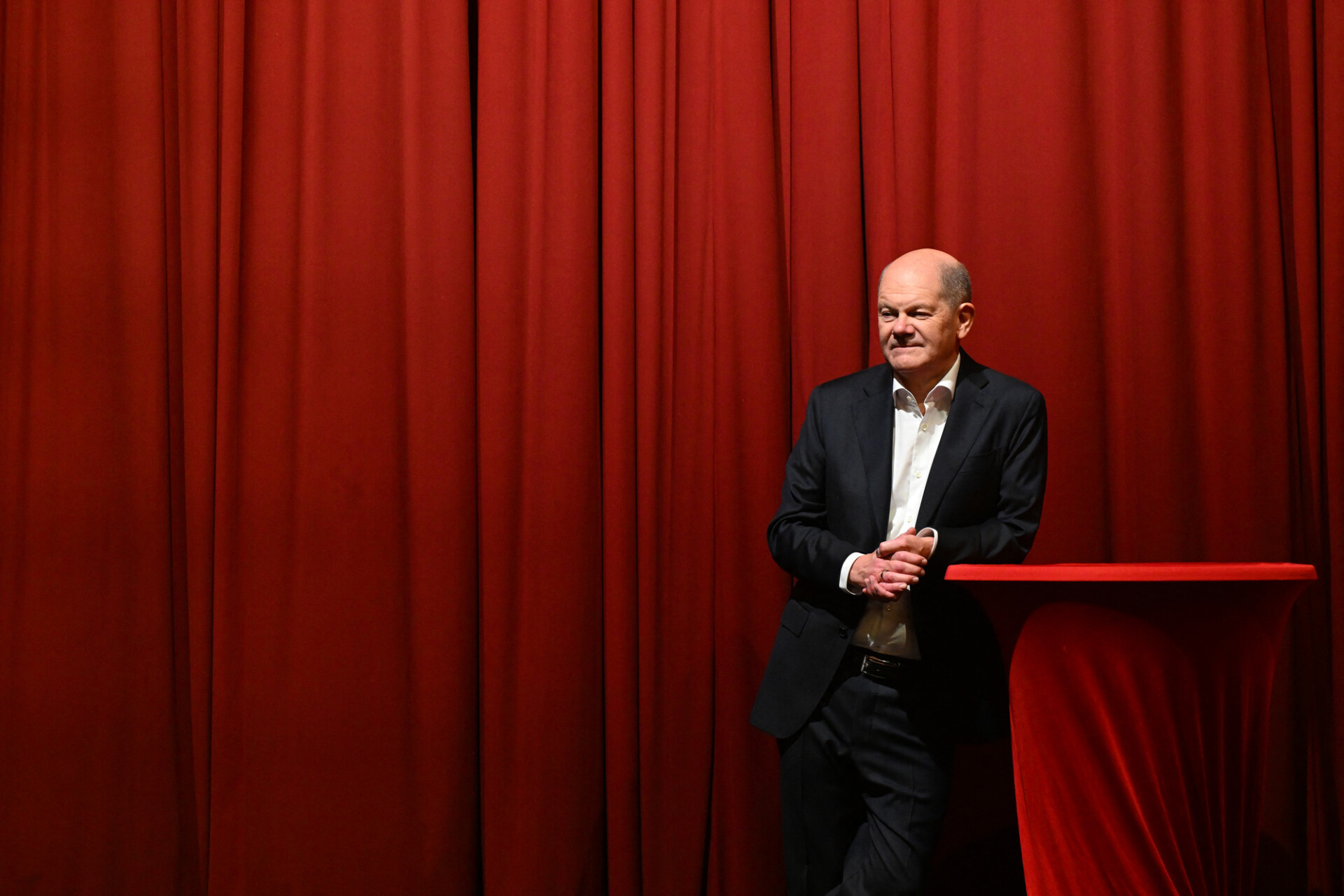Germany’s campaign season preceding the February 2025 federal elections is starting to take shape. But for Germans, the prospects look increasingly dire. Indeed, it appears as though the traffic-light coalition will remain in place, even if one “light” is changed for another.
In a somewhat bizarre TV stunt last Friday, the main candidates of the conservatives (CDU), the Social Democrats (SPD), and the Greens were given 15 minutes to put forward their vision of the coming election. Chancellor Scholz and the leader of the CDU, Friedrich Merz, emphasised that they are playing by the “rules of democracy” — insinuating that other parties like the Left-populist party of Sahra Wagenknecht (BSW) and the Right-wing Alternative for Germany (AfD) are doing the opposite.
This was a ballsy claim considering that it is the AfD who is actually suffering from the anti-democratic actions of Germany’s security apparatus. Recently, it was announced that the regional president of Thuringia’s state domestic intelligence agency will be facing a parliamentary investigation for attempting to depict the AfD as an extremist party. If weaponising the German equivalent of the MI5 is “playing by democratic rules”, one should be worried about the future of the country.
The reality, though, is that the current government of the SPD, the FDP and the Greens will likely lose its majority after the elections. But the most likely new coalition government will be between the conservatives and — yet again — the Social Democrats. If the two parties do not gain the required majority, it will be the Greens who are going to join them, since most polls show that the FDP will not pass the 5% threshold to be represented in the Bundestag.
The promises made in the party programme of the CDU explain why they lead in the polls: less welfare, a reduction of migration, less bureaucracy, and even an investigation about restarting nuclear power. Alas, the only party which would be prepared to support all of these points is the AfD — the one party Mr. Merz has categorically excluded as a partner in any area.
Which brings us back to the TV statements: in his disarming honesty, Robert Habeck put his cards on the table. “Do not believe those who promise a course correction [after the elections],” he said during his TV segment. Most likely, he is going to be proven right. The way in which the campaign is shaping up, this will not be a change election but only the replacement of Scholz with Merz and a coalition government that will not reverse the most damaging policies of the last 10 years.
The AfD, for its part, can lean back and let things play out. Another four years of a mismanaged German economy will do to the CDU what it did to the SPD, namely the reduction from a party that once regularly polled over 30% to one that barely gets to 20%. Where will those votes most likely go? It’s too soon to tell, but from the AfD’s perspective, the path to becoming Germany’s strongest party is something to prepare for.











Join the discussion
Join like minded readers that support our journalism by becoming a paid subscriber
To join the discussion in the comments, become a paid subscriber.
Join like minded readers that support our journalism, read unlimited articles and enjoy other subscriber-only benefits.
Subscribe